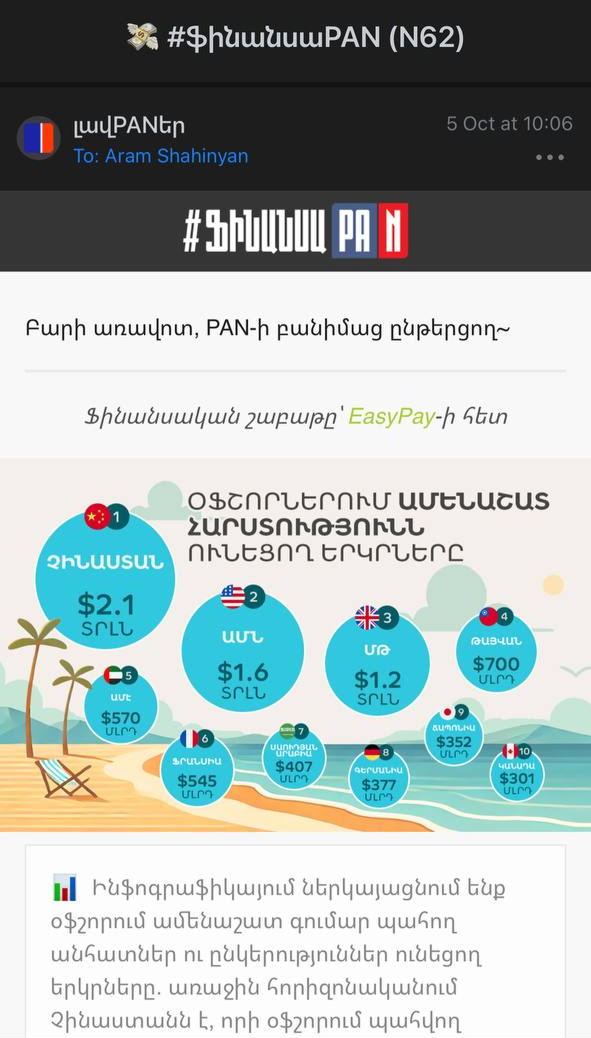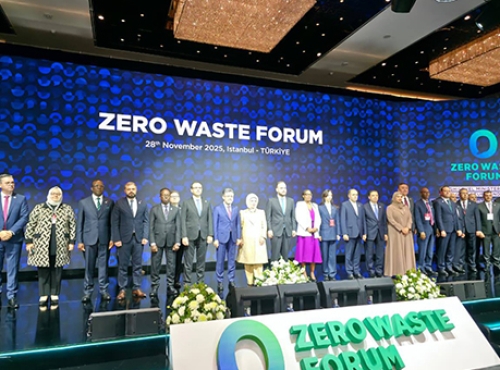The Executive Board of the International Monetary Fund (IMF) approved a three-year arrangement under the Extended Fund Facility (EFF) in an amount equivalent to SDR133.40 million (US$197.4 million) and a three-year arrangement under the Extended Credit Facility (ECF) in an amount equivalent to SDR 133.40 million (US$197.4 million) for the Republic of Armenia. Access under the arrangements totals an amount equivalent to SDR 266.80 million (US$394.8 million) for the period through June 27, 2013. The Board decisions enable the immediate disbursement of an amount equivalent to SDR 36.2 million (US$53.6 million).The Board also took note of Armenia’s request to cancel a Stand-By Arrangement approved on March 6, 2009 without completing the fourth review.
The program objectives are to restore fiscal and external sustainability, preserve financial stability, and support growth and poverty reduction. These objectives will be addressed under the new EFF and ECF arrangements, which will provide a renewed focus on the macroeconomic policies and structural reforms to achieve solid medium-term growth, fiscal and debt sustainability, and financial sector stability.
Following the Executive Board’s discussion on Armenia, Mr. Murilo Portugal, Deputy Managing Director and Acting Chair, said: “The Armenian economy is emerging from a deep downturn. Policies supported under the Stand-By Arrangement (SBA) were instrumental in maintaining economic and financial stability and mitigating the impact of the crisis on the poor. As the economy recovers, the authorities are renewing their focus on medium-term challenges: achieving strong growth and poverty reduction, debt sustainability, and financial sector stability. To this end, the authorities have requested the cancellation of the SBA and a new three-year Extended Fund Facility and Extended Credit Facility arrangement.
“The new program reflects a strong commitment to a sustainable fiscal position, in light of rising public debt and the weak external position. The authorities aim to reduce the deficit by around 5 percentage points of GDP by the end of the program, while ensuring that social spending is protected. The authorities have also drawn up a broad tax administration reform program to support the fiscal adjustment and raise Armenia’s tax-to-GDP ratio in the medium term.
“Exchange rate flexibility will remain a cornerstone of the program, complementing the authorities’ objective to target inflation. The monetary stance will remain neutral, as inflation, while currently above the target, is expected to recede.
“The financial sector is sound and well-capitalized. The authorities are strengthening their crisis preparedness frameworks.
“Wide-ranging structural reforms remain essential to achieving sustained growth and reducing poverty. Key elements in this regard include fighting corruption, stepping up public investment, simplifying the tax regime, regulations, reporting requirements, and increasing competition. The authorities also intend to improve the efficiency and targeting of social spending to reverse the increase in poverty levels.”






















